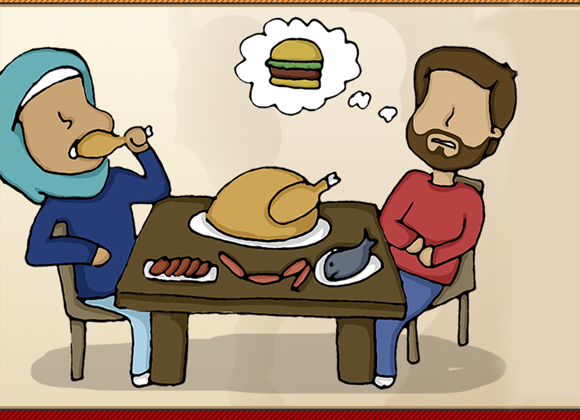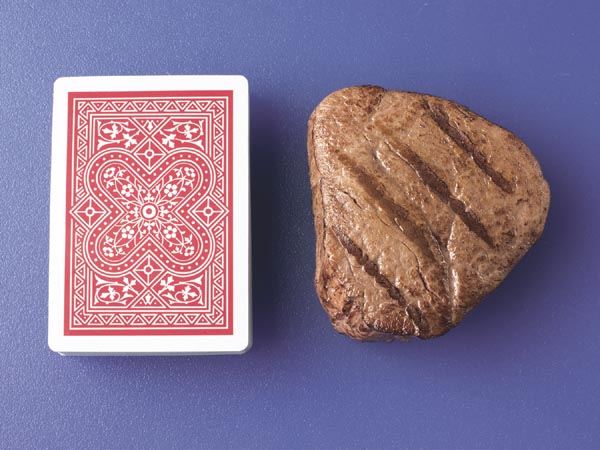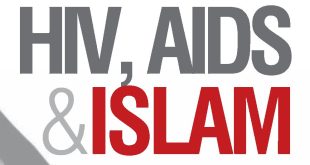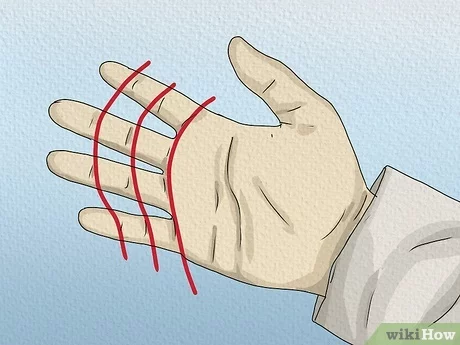
In the Muslim community, eating lots (and lots) of meat is a tradition we are all very familiar with. For most of our families, it is practically unimaginable to have a lunch or dinner without meat. Having a kebab or two for breakfast isn’t unheard of either – we love our meat, and we know it.
But, how much meat are we actually eating??
We know that as a population, North Americans eat a lot of meat. Canadians place as the 12th largest consumer of meat at 108 kg per person. Compare that to the world’s lowest meat consumer, Bangladesh, which stands at 3 kg per person. Basically, Canadians eat 36 times more meat than a person in Bangladesh! But, specifically, Our Muslim communities’ love of meat may be even higher than this!
A fascinating survey was conducted in 2001 in Alberta, called the “Canadian Halal Meat Market Study”, looked at average volume of meat being eaten by the Canadian Muslim community. The authors of this study write:
“Muslims are ardent consumers of meat and meat products, with feast days and celebrations that often include several different meat dishes. On average, Muslim households spend $31 per week on halal meat products. This is almost double the Canadian household meat expenditure of $17 per week. (Statistics Canada, 2003).” (Canadian Halal Meat Market Study)
So not only do we SPEND a lot on meat, we EAT a lot more meat than the average household, too! The same study finds that:
“The average Canadian Muslim household consumes 5.6 meat servings per day.” (Canadian Halal Meat Market Study)
It is important to note, that Canada’s food guide recommends only 2-3 servings of meat consumed per day… yet many Muslims are eating double this daily recommended amount of meat!
So what’s the bottom line? We are overspending and overeating on meat. And we all thought eating healthy was expensive… how about taking a look at our meat bill, first??
So, what does all this meat mean for your health?
It is important to note that the objective of this article is NOT to claim that we should never eat meat! Allah ![]() has blessed mankind with the creation of animals, for us to benefit from and consume.
has blessed mankind with the creation of animals, for us to benefit from and consume.
And the grazing livestock He has created for you; in them is warmth and [numerous] benefits, and from them you eat. (Nahl: 5)
Animal meat has been made halal for us. As Muslims, and we are commanded in the Quran not to make that which is halal, into haram:
“O you who have believed, do not prohibit the good things which Allah has made lawful to you and do not transgress. Indeed, Allah does not like transgressors.” (Ma’idah:87).
Animal meat contains protein and benefit for our bodies, and we should be thankful for this blessing. However, it IS important to recognize that as a community, we ARE eating TOO much meat, and too much of a good thing becomes harmful! Let’s look at some scary consequences of eating TOO MUCH meat – “meat over-consumption”, so we can understand how our eating habits may be negatively affecting our health.
Health Consequences Of Meat Over-consumption
- Increased chance of death. Frequent consumption of red meat, sausage, luncheon meats and other processed meat products has been linked to a 29% increased chance of death from any cause (American Journal of Epidemiology).
- Too much meat can make you fat. Compared to vegetarians and people who eat low amounts of meat, people who eat a lot of meat experienced higher rates of obesity (International Journal of Obesity).
- Increased risk of heart disease. We all have important bacteria in our gut, but people who eat a lot of meat have gut bacteria that produce more TMAO, a substance that “is thought to encourage fatty plaque deposits to form within arteries (atherosclerosis), and therefore, the more TMAO you have in your blood the greater your risk of heart disease might be” (Nat. Med).
- Antibiotic-resistant superbugs. Animals raised for meat are typically treated with high doses of antibiotics throughout their short lives to enhance growth. The FDA reviewed 30 of these and found that 18 of these posed a high risk for exposing human beings to antibiotic resistant superbugs (NRDC).
- Animal to human transmission of disease. Raising animals for meat is creates environments for animal to human transmission of diseases like bird flu (chickens) and swine flu (pigs) (Pro-Poor Livestock Policy Initiative).
Canada’s food guide recommends 2-3 servings of meat and alternatives per day. How much is one serving in terms of meat? One SERVING of meat is about the size of a desk of cards, or the amount that would fit over the palm of your hand. This is an important guideline to keep in mind when we fill our plates!
One SERVING of meat is about the size of a desk of cards, or the amount that would fit over the palm of your hand

It’s important to realize that the Prophet ![]() and his companions ate very little meat.
and his companions ate very little meat.
Al-Hasan narrates: “Umar entered upon his son Abdullah when they (him and his family) had meat with them. Umar asked, ‘Why are you having meat?’, Abdullah replied, ‘I was craving it’, Umar said, ‘Is it the case that everything you crave you just eat!? It is enough to reach the level of extravagance that a person eats everything that he craves.” 1
As Muslims, we must realize that consuming too much meat may lead us to extravagance. We must have self-control when eating meat, to avoid going overboard.
But what about protein?
Protein is extremely important, but many of us forget that meat is just one of many, many natural sources of protein available to us! Vegetables, legumes, nuts, seeds, non-dairy milk and grains are amazing sources of protein! Here’s some quick stats to consider when wondering how you can add more plant-based sources of protein into your diet.
- 1 chicken breast = 31 grams of protein
- 1 whole egg = 6 grams of protein
- 1 cup soybeans – 28 grams of protein
- 1 cup lentils – 18 grams of protein (gotta love that dhaal!)
- 1 cup garbanzo beans / chickpeas (and hummus) – 14.5 grams of protein
- 1 cup pinto, kidney, black beans – 13-15 grams
- Quinoa – 1 cup – 9 grams of delicious protein
- Oatmeal – 1 cup = 6 grams of protein
There are so many plant-based sources of protein, and using these options to substitute and supplement meat for some of our meals can do a lot for our health. You can take many steps to reduce your meat consumption. Try and match Canada’s Food Guide recommendation of 2-3 servings of meat a day. Or, pick one day of the meat to have a plant-based source of protein, instead of meat. Most of all, it’s important that you educate yourself of the true impacts of eating meat and spread the information throughout our community. As we decrease the amount of money we spend on meat, we begin to realize that healthy, sustainable living does not have to be overly expensive, at all! One step at a time, towards a healthier Ummah, inshAllah… and it starts with YOU!
Source: http://blog.islamiconlineuniversity.com
Post Disclaimer | Support Us
Support Us
The sailanmuslim.com web site entirely supported by individual donors and well wishers. If you regularly visit this site and wish to show your appreciation, or if you wish to see further development of sailanmuslim.com, please donate us
IMPORTANT : All content hosted on sailanmuslim.com is solely for non-commercial purposes and with the permission of original copyright holders. Any other use of the hosted content, such as for financial gain, requires express approval from the copyright owners.
 Sri lanka Muslims Web Portal Sri Lanka Muslims News Center
Sri lanka Muslims Web Portal Sri Lanka Muslims News Center
 Donate
Donate


